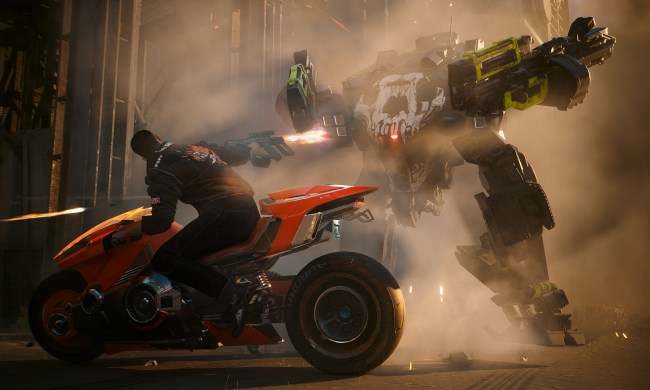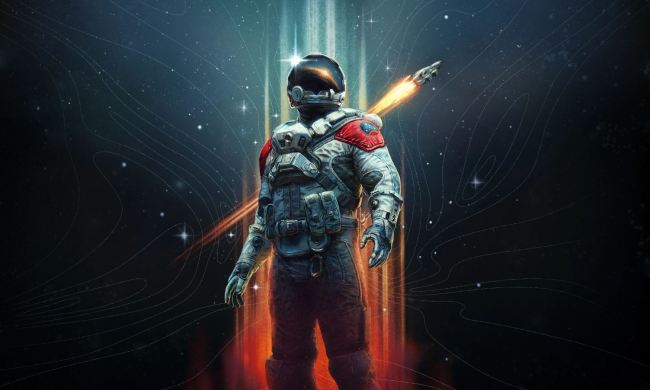Cyberpunk 2077 takes a lot of notes from the tabletop RPG on which it’s based, and nowhere is that more clear than with lifepaths. Lifepaths change how you start in Night City, forming the basis for your character while giving you different dialogue options throughout the game. Although all players will end up at the same spot after about an hour or so, the beginning moments for each lifepath are unique.
But, which one should you choose? Lifepaths change how you start your journey in Night City, sure, but also how you approach the city for the rest of the game. In this guide, we’ll give you a quick overview of each lifepath in Cyberpunk 2077, as well as the differences between them.
Further reading
- How to increase your Street Cred in Cyberpunk 2077
- The best weapons in Cyberpunk 2077, and where to find them
- How to level up fast in Cyberpunk 2077
What are the differences between lifepaths?
There are two major differences between each of the lifepaths in Cyberpunk 2077. The first is the prologue. Each lifepath has its own prologue that will introduce you to the world and to Jackie Welles, as well as give you some background on the lifepath you chose. The first few missions for each lifepath are different. However, all players end up at the same starting point shortly after the game begins, so don’t worry about missing out on any main story content.
You will miss out on dialogue choices, however. Each lifepath will give you different dialogue choices in certain situations that would otherwise be inaccessible. If you’re a Streetkid, for example, you might be able to use your reputation in the neighborhood during negotiations on your home turf. However, that negotiation may not work in the City Center, where someone on the Corpo life path might carry more weight.
Additionally, your lifepath influences the clothes you start the game with, as well as some of the characters tied to lifepath-exclusive side quests.
That’s all your lifepath influences. There aren’t any exclusive perks, weapons, or endings tied to a specific lifepath. Because of that, you shouldn’t worry too much about picking (there isn’t a “best” option). Although you’ll have access to exclusive side quests and dialogue options throughout the game, your lifepath mainly just influences how you’ll start your journey in Cyberpunk 2077.
Streetkid

As a Streetkid, you live by your own rules. Raised by small-time criminals, you know how to lie, cheat, and steal to survive. You’re the bottom of the totem pole, but you know how to exploit Night City’s underbelly to get what you want.
If you choose Streetkid as your lifepath, you’ll start Cyberpunk 2077 at the El Coyote Cojo in Heywood after arriving back in Night City from a job in Atlanta. Pepe, the bartender, clues you in that he’s in deep and that he needs help. After talking with a fixer at the bar, you agree to help Pepe out by finishing a job.
Because you grew up on the streets, many of the gangs and fixers around Night City will be a little more welcoming (as welcoming as they can be, anyway), while NCPD officers and Corpos will be suspicious of you.
Out of all of the Lifepaths, the Streetkid dialogue choices are the most useful. Most of your time in Night City will be spent with fixers and gang members, and Street Kids have more dialogue choices with them.
Nomad

Nomads grew up outside the walls of Night City, forming into tribes in the outskirt Badlands to scavenge, steal, and build to get by. As a Nomad, you have a strong sense of community, working with your tribe to smuggle what you need out of Night City and flip it for a profit.
Not that Nomads care about money. As the outcasts of Night City, Nomads are simply concerned with survival, preferring to stay in their clans outside of the city limits, and only venturing in when absolutely necessary.
The Nomad lifepath begins with you meeting up with Jackie Welles in The Badlands to smuggle contraband past Militech soldiers at a Night City checkpoint. We won’t spoil how the interaction goes, but after, V and Jackie decide that a life inside Night City might not be so bad afterall.
As far as dialogue choices go, Nomads do well with other Nomads. There’s a sense of comradery between Nomads, but not between Nomads and others. Corpos look at Streetkids as nuisances, but they look at Nomads as fiends. Streetkids themselves don’t take kindly to outsiders, either.
Corpo

The Corpo lifepath strikes at the heart of Night City. As an Arasaka agent, you know how to exploit the corporate system to get ahead, and you have plenty of dirt on your rivals. The few smiles that show up in Corpo life always hide something worse — as an Arasaka agent, it’s killed or be killed.
Corpos are fit with the latest and most powerful Cyberware, and if that doesn’t do that trick, Militech soldiers will back you up. The City Center is where you work and play, surrounded by buildings of impossible scale (a constant reminder to the citizens of Night City that you are more powerful than them).
If you choose to start as a Corpo, you’ll begin life in Arasaka Tower as a counter-intel specialist. After a brief call with your friend Jackie — who’s quick to remind you of the dangers of corporate life — you meet with Agent Jenkins, who gives you a secret relic that no one else at the Arasaka Corporation can know about.
Knowing the ins and outs of corporate life has its upsides, though. As a Corpo, you know how to make deals with Night City elites, and you know how to spot a trap when you see one. On the other hand, Streetkids and Nomads don’t take kindly to Corpos, and they’re quick to remind you of that fact.




